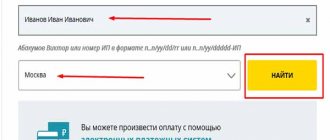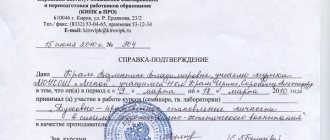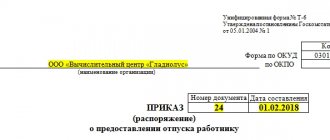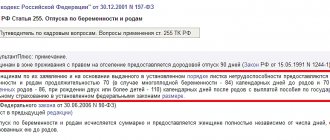Labor legislation provides for three possible options for changing the duration of vacations: recall, transfer and extension.
In some cases, the employer is obliged to extend or reschedule vacation; in other situations, the employer has the right to revoke or reschedule vacation.
In the normal business life of any enterprise, emergency situations cannot be ruled out when an employee, who is about to or has just gone on vacation, urgently needs to return to work. In this case, the employer may offer the employee to postpone the vacation (if the vacation has not yet begun) or recall him from vacation (if the employee is already on vacation).
Today we will analyze the employer’s actions when recalling from vacation and postponing vacation, so that this does not lead to violations of the employee’s right to rest and does not attract the attention of the State Labor Inspectorate.
Review from vacation
The employer has the right to recall the employee from annual paid leave. This right is granted to the employer by Article 125 of the Labor Code of the Russian Federation (hereinafter referred to as the Labor Code of the Russian Federation, Code). Recall from vacation is possible only with the consent of the employee. In case of refusal, the employee is not obliged to justify or explain the reasons and circumstances of his decision. An employee’s refusal to go to work when called back early from vacation is not a violation of labor discipline and cannot lead to disciplinary sanctions.
cannot be recalled from vacation (even with their consent) .
This:
- minor employees;
- pregnant women;
- workers engaged in work with harmful and/or dangerous working conditions.
Recall of these categories of employees will lead to administrative liability provided for in Part 1 of Article 5.27 of the Code of Administrative Offenses of the Russian Federation, in the form of a fine for the organization in the amount of 30,000 to 50,000 rubles and a fine for the official in the amount of 1,000 to 5,000 rubles.
The procedure for recalling an employee from vacation is quite simple, but the most important thing here will be the correct execution of the relevant documents. Let's break down the review process into separate steps.
Stage 1. Receipt by the head of the enterprise of an official (report) note, which states the need to recall a specific employee from vacation with an explanation of the reasons.
Stage 2. Contacting the employee. The employee can be informed of the need to take early leave either orally or in writing by sending an official letter. In any case, for the employee to make a decision, it is necessary to provide him with complete information about what happened and indicate the importance of his participation.
Stage 3. Obtaining consent. The employee's consent to the recall is a prerequisite. To prevent the emergence of controversial issues, such consent must be obtained in writing. In the consent, the employee must indicate: his data, his position, the consent itself and the date from which the employee leaves the vacation early, the desired date for the provision of the unused part of the vacation.
Stage 4. Issuing an order to recall from vacation. After receiving the employee’s consent, you can issue an order to recall him from vacation. There is no unified form for such an order, so it can be drawn up in any form with the obligatory indication of: employee data, date of recall, dates of vacation (from which it is recalled), the number of days of vacation that remain unused, dates to which, at the request of the employee, the unused part of the vacation, indicating the need to recalculate vacation pay. Such an order/instruction must be issued by the time the employee returns to work. In the order, the employee puts a mark indicating his agreement with its contents. Based on this order, changes are made to the vacation schedule and personal card.
The part of the vacation unused in connection with the recall must be provided at the employee’s choice at a time convenient for him during the current working year or added to the vacation for the next working year (Part 2 of Article 125 of the Labor Code of the Russian Federation).
Therefore, in connection with the call from annual paid leave, as well as the need to provide unused vacation days, changes are made to the vacation schedule and personal card.
From the moment of early return to work, the employee must be paid wages for the time actually worked . Part of the vacation pay in the form of average earnings for unused vacation days becomes overpaid. The employer does not have the right to offset this amount against wages for time worked after recall from vacation or against future vacation pay, since in essence this will be a deduction, and Article 137 of the Labor Code of the Russian Federation does not provide for such a basis for deduction. Thus, vacation pay needs to be recalculated .
After all, unused vacation days will be provided at another time. The amount of vacation pay will be determined based on a different billing period. An employer may have a question: is it necessary to make payment for work on the day the employee is recalled from vacation? The answer to this question was given by judicial practice, indicating the following.
By virtue of Part 2 of Article 125 of the Labor Code of the Russian Federation, recall of an employee from vacation is allowed only with his consent. The part of the vacation unused in this regard must be provided at the employee’s choice at a time convenient for him during the current working year or added to the vacation for the next working year.
Based on the literal interpretation of this norm, payment for work on the day of vacation when an employee is recalled from it is not provided.
Moreover, when an employee is granted vacation (in this case, the plaintiff went on another paid vacation), he is paid for all days of vacation, therefore, the day of vacation on which the employee was recalled is also already paid for him. (Appeal ruling of the Investigative Committee for civil cases of the Volgograd Regional Court dated 04/03/2015 in case No. 33-3464/2015)
It is possible to recall an employee from vacation, unless this leads to the fact that each part of the actually used vacation will be less than 14 calendar days. We remind you that at least one part of the vacation must be at least 14 calendar days (Part 1 of Article 125 of the Labor Code of the Russian Federation).
Compilation example
It’s easier to create a document based on an example. The company may have application forms for vacation cancellation. If they exist, then it will be enough just to fill in the empty fields. It's convenient and simple. If you don’t have the form, you can ask the HR department or the secretary for an example of writing such an application.
There are situations when, due to certain production circumstances, the manager asks an employee to return to work from vacation. In this case, the employee's consent is required.
An application to cancel the vacation is drawn up. The remaining days off are then transferred to another time. A sample application for cancellation of vacation for this reason is given below.
to CEO
OJSC "Mobilsvyaz"
Kovalev D.P.
technical control department employee
Sidorov Oleg Ivanovich
Statement
I, Oleg Ivanovich Sidorov, agree to be recalled from annual paid leave from 10/08/2019, which began on 10/03/2019 according to the vacation schedule for 2021, approved by the General Director on 12/10/2018, with the provision of the remaining 23 calendar days in two parts: 14 days from 10/28/2018 .2019 to 11/11/2019 and 9 days from 12/09/2019 to 12/17/2019.
10/07/2019 (signature) Sidorov O.I.
It happens that due to a large amount of work or a long-term illness of a partner, you need to cancel your scheduled vacation and reschedule it to another date. An example of document preparation in this case is given below.
to CEO
OJSC "Mobilsvyaz"
Kovalev D.P.
technical control department employee
Sidorov Oleg Ivanovich
Statement
I, Sidorov Oleg Ivanovich, ask to cancel the annual paid leave of 28 calendar days assigned to me according to the vacation schedule from 10/09/2019 to 11/06/2019 and to postpone it to the period from 12/02/2019 to 12/29/2019 due to circumstances that have arisen that require my personal presence at the workplace in the period from October to November.
09.16.2019 (signature) Sidorov O.I.
If you took a vacation at your own expense and there is no longer a need for it, then an application will also be required to cancel it. An example is given below.
to CEO
OJSC "Mobilsvyaz"
Kovalev D.P.
technical control department employee
Sidorov Oleg Ivanovich
Statement
I, Oleg Ivanovich Sidorov, took leave at my own expense for 7 calendar days, from 10/08/2019 to 10/14/2019. Due to the circumstances that have arisen, I ask you to cancel the provision of days off to me.
10/07/2019 (signature) Sidorov O.I.
There are situations when an employee takes part of the annual leave and is sick during this period. He has the right to cancel his scheduled vacation and reschedule it for another period. In this case, the statement will look like this.
to CEO
OJSC "Mobilsvyaz"
Kovalev D.P.
technical control department employee
Sidorov Oleg Ivanovich
Statement
I took annual leave for 7 calendar days, from 10/01/2019 to 10/07/2019. During this period (01.10.2019-07.10.2019) I was on sick leave. In this regard, I ask you to cancel my scheduled vacation and reschedule it for the period from 10/16/2019 to 10/22/2019. I also ask you to pay me temporary disability benefits. I am attaching a sick leave certificate to the application.
10/07/2019 (signature) Sidorov O.I.
Based on the employee’s application, an order to cancel or transfer vacation days will be drawn up and issued.
Transfer of vacation
The transfer of leave implies that the number of days that were not included in the leave used by the employee is subsequently provided separately or by adding to the next annual paid leave.
Important! Postponement of vacation is not a cancellation of vacation.
such a basis for transferring vacation as production necessity . The Code contains a very vague wording - “in exceptional cases when the provision of vacation to an employee in the current year may adversely affect the normal course of work of an organization or individual entrepreneur.”
In this case, it is also necessary to obtain the employee's consent .
For this reason, vacation may be transferred to the next working year. limitations here :
- the employer must obtain the employee’s consent to this (either in the form of a statement or an inscription on a document that justifies the transfer of leave);
- leave must be used no later than 12 months after the end of the working year for which it is granted (Part 3 of Article 124 of the Labor Code of the Russian Federation);
- It is prohibited to fail to provide annual paid leave for 2 years in a row, as well as to employees under the age of 18 and employees engaged in work with harmful and (or) dangerous working conditions (Part 4 of Article 124 of the Labor Code of the Russian Federation).
The procedure for transferring vacation:
- The emergence of a situation requiring rescheduling of vacation and its confirmation. To document the existence of such an “exceptional case,” we recommend, for example, drawing up memos addressed to the head of the organization describing the situation that is developing at the enterprise, as well as indicating the adverse consequences if the employee goes on vacation.
- Contacting the employee. After drawing up such a note, it is necessary to contact the employee either in writing or orally with an appropriate proposal and new vacation dates, which also must be agreed upon with the employee. If the employee agrees to postpone the vacation, such consent must be requested in writing.
- If the employee’s consent is received, an order is issued to postpone the vacation. An order to transfer vacation is drawn up by the employer in any form. It must indicate: the basis for the transfer, the new vacation period. employee details and position.
The details of the order to transfer the employee’s vacation must be indicated in column 8 of the unified vacation schedule
.
Also in the schedule
you must indicate the new start date of the vacation (column 9).
Moreover, if an order was previously issued to grant the employee leave, it must be cancelled.
As we can see from the article, the procedure for recalling a vacation and rescheduling a vacation does not involve any difficulties, but does require the execution of a certain number of documents. The recall of an employee from vacation and the transfer are influenced, first of all, by the production process. But in any case, the final decision remains with the employee.
If in the presented situations, recall from vacation and transfer of vacation is the right of the employer, which, however, is exercised with the consent of the employee, then in the next issue we will analyze situations when the employer will be obliged to postpone or extend the employee’s vacation at his request.
Notifying an employee about an upcoming vacation
Many employees are sure that they don’t have to go on vacation if they don’t feel like resting or if they are counting on monetary compensation for the days they didn’t take off. On the one hand, it is obvious that if an employee did not have the opportunity or desire to rest, then he should receive monetary compensation for the time he did not take off.
Let's look at those groups of working people for whom it is impossible to refuse vacation at all. Minor employees, as well as pregnant women, cannot replace all or at least part of their vacation with money. These categories are required to fully rest, and therefore, even if they have their own initiative, they cannot receive compensation without taking the required days off.
Another special category is employees who are employed in jobs with harmful or dangerous working conditions. In addition to regular vacation periods, they are also entitled to additional ones. Additional leave is specifically given so that they can restore the reserve of lost health, so compensation for them is prohibited.
All other workers can refuse to take those days that they are entitled to in excess of the mandatory minimum of 28 days. Article 126 of the Labor Code of the Russian Federation states that, at the request of the working citizen himself, expressed in writing, all days exceeding the legal minimum can be compensated. Moreover, this can be done regularly every year, without restrictions. But you will have to take the mandatory minimum time off in any case.
In some cases, employers do not know how to properly respond to an employee’s refusal to go on vacation. In case of refusal, the first thing you should talk about with the employee is the reasons that prompted him to make such a decision. Most often, it’s not so much about a complete refusal to rest, but rather about the inability to take advantage of it during a period strictly established according to the schedule.
It should be remembered that the time for exercising the right to annual rest is selected based on the agreement reached between the parties to the labor process. Neither the employee nor the employer can make such a decision alone, and accordingly, it is also impossible to make changes to the schedule.
When an employee approaches the management of an organization with a request to refuse leave, he cannot count on his request being granted with a 100% guarantee. The leader, first of all, complies with the rules of the law. The Labor Code contains a clause that the vacation period can be postponed to the next year, but must be implemented within two years.
We invite you to read: Divorce without the presence of a spouse IC RF
The procedure for granting leave is regulated step by step and does not end with drawing up a priority schedule. The employer is obliged to correctly register the vacation period of each employee.
Article 123 of the Labor Code of the Russian Federation establishes that the management of the organization must ensure timely notification of vacationers about the start time of their vacation.
A whole procedure has been developed for this:
- HR department employees are preparing a notification about the imminent start of vacation.
- The notice is given at least two weeks before the start of the holiday.
- The employee reads the notification and puts his signature on the document.
Violation of the notification procedure or failure to comply with notification deadlines allows employees to change the start time of vacation at their discretion. Lack of notification does not mean that the employee will not go on vacation as scheduled, but it gives him the right to do so. And if the vacationer himself wants to postpone the vacation to another time, then the employer will be obliged to meet him halfway.
Revocation, transfer and extension of leave: what, when and how?
The concept of “transferring vacation” is given in the previous issue, while extending vacation assumes that the number of days by which the vacation should be extended is added to the annual paid leave in such a way that there is no break between the days of “extension” and the vacation itself (i.e. . the employee does not go to work)
Article 124 of the Labor Code of the Russian Federation determines that extending or postponing vacation is possible and is the responsibility of the employer in the following cases :
- temporary disability of the employee;
- the employee performs state duties during his annual paid leave, if for this purpose the labor legislation provides for exemption from work (such may be: jury duty, participation in a trial as a witness, military training, participation in the work of election commissions);
- in other cases provided for by labor legislation and local regulations.
If no questions arise with the first two cases of transfer or extension, then the possibility of a broad interpretation of the last paragraph may cause difficulties for both the employer and the employee.
To resolve such situations, the Ministry of Labor and its structural divisions issue letters. Thus, the Letter of the Federal Service for Labor and Employment dated 06/01/2012 No. PG/4629-6-1 “On extending leave in case of caring for a sick family member” states that the obligation to extend leave by the number of calendar days of incapacity for work, if temporary incapacity occurred during the period of annual paid leave, arises for the employer only in the event of temporary disability of the employee himself. Consequently, such a case as the illness of a family member may be provided for in a local regulatory act adopted by the employer in the prescribed manner as a basis for extending annual paid leave; the mere fact of illness of an employee’s family member does not give him the right to extend or postpone the leave.
Also, undergoing a medical examination during the vacation period (in the absence of signs of temporary disability) is not a basis for extending or postponing vacation by force of law.
an obligation to extend or postpone leave when an employee combines work and study at an educational institution of higher professional education that has state accreditation. Guided by Article 173 of the Labor Code of the Russian Federation, the employer is obliged to provide the employee with study leave. If this vacation falls on the main paid vacation, then the employer must either extend the main vacation for the duration of the study leave or postpone it to another period. It is important to remember that study leave cannot be transferred, since it is granted on the basis of a summons certificate.
There are circumstances in which the employer has an obligation to postpone vacation if the employee submits a corresponding application:
- the employer did not transfer payment to the vacationer for the vacation in a timely manner, that is, later than 3 calendar days before the start of the vacation (Part 2 of Article 124, Article 136 of the Labor Code of the Russian Federation).
- the employee was warned about the start time of the vacation less than 2 weeks before it began (part 2 of article 124 of the Labor Code of the Russian Federation).
In most cases, it is the employee who initiates the transfer of vacation. The employee draws up an application to postpone the vacation and submits it to the employer. In this situation, the employer is not obliged to postpone the vacation, but has the right to agree with the employee.
Extension or transfer?
The article of the Labor Code of the Russian Federation, while listing cases of extending or postponing vacation, does not indicate when vacation needs to be extended and when it needs to be postponed.
Any regulations since the adoption of the current Labor Code of the Russian Federation do not answer this question. However, as is known, many regulations issued during the existence of the Soviet Union are still in force (but with significant restrictions). Thus, Article 18 of the Rules on regular and additional vacations approved by the People's Commissariat of Labor of the USSR on April 30, 1930 N 169 indicates that if the reasons preventing the employee from going on vacation occurred before it began, then the new period of vacation is determined by agreement of the employer with employee. If these reasons occur while the employee is on vacation, then the period for returning from vacation is automatically extended by the corresponding number of days, and the employee is obliged to immediately notify the employer about this.
Indeed, the provisions of the Rules meet the requirements of logic: it is impossible to extend a vacation that has not even begun yet, therefore, such a vacation can only be postponed. However, if the vacation has begun, then it is possible to either transfer unused days to another period or extend it, because Article 124 of the Labor Code of the Russian Federation allows for both options. Therefore, the Rules on regular and additional leaves should not be considered as a restriction for the employee and the employer to resolve the issue through negotiations and the adoption of mutually beneficial conditions.











